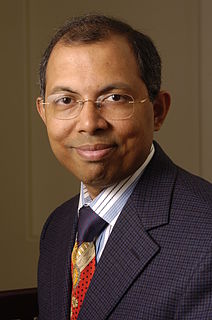A Quote by Peter Kreeft
An argument in apologetics, when actually used in dialogue, is an extension of the arguer. The arguer's tone, sincerity, care, concern, listening, and respect matter as much as his or her logic - probably more. The world was won for Christ not by arguments but by sanctity: "What you are speaks so loud, I can hardly hear what you say.
Related Quotes
If you and I are not having a dialogue, when you're having an argument, the reason the argument happen is because we are not listening to each other. Then, the argument comes in, but if we truly listen instead of hearing, argument will not happen. Then, we'll empathize, and then once the empathy kicks in, you will be much more inclining with my viewpoint and I'll be inclining with your viewpoint, and that's what is missing in organizations.
The terminology of philosophical art is coercive: arguments are powerful and best when they are knockdown, arguments force you to a conclusion, if you believe the premisses you have to or must believe the conclusion, some arguments do not carry much punch, and so forth. A philosophical argument is an attempt to get someone to believe something, whether he wants to beleive it or not. A successful philosophical argument, a strong argument, forces someone to a belief.
The feeling of loving her and being loved by her welled up in him, and he could taste the adrenaline in the back of his throat, and maybe it wasn't over, and maybe he could feel her hand in his again and hear her loud, brash voice contort itself into a whisper to say I-love-you as if it were a secret, and an immense one.




































